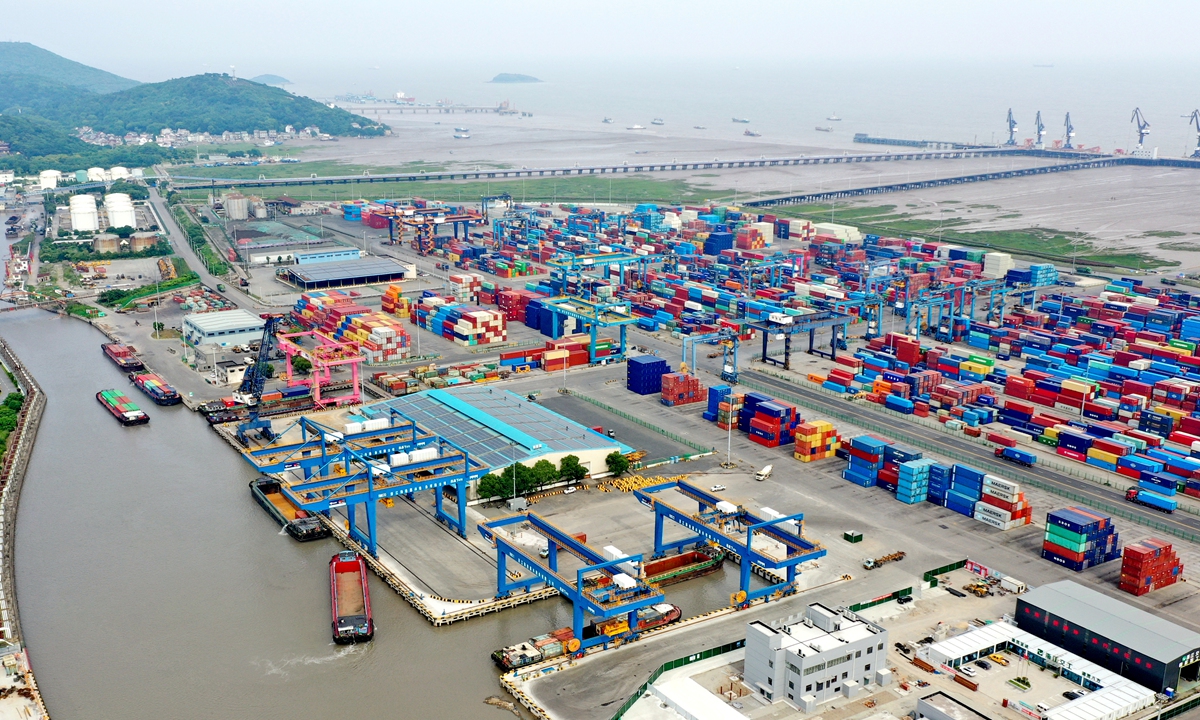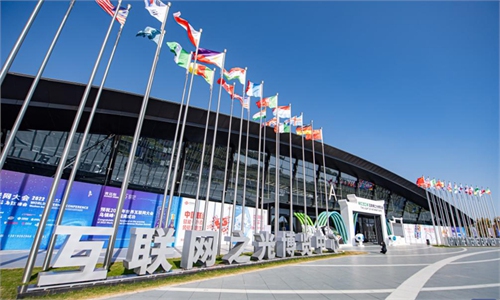Chinese internet giants seek new growth momentum by integrating with real economy

Containers are loaded on barges at a port in Jiaxing, East China’s Zhejiang Province on June 16, 2022. The throughput of containers that were shipped between oceangoing vessels and river-going vessels saw a sharp increase of 69.4 percent year-on-year during the first five months of 2022, according to Ningbo Zhoushan Port Group. Photo: Courtesy of Ningbo Zhoushan Port Group
Amid the tide of the digital economy, Chinese internet giants are seeking new growth momentum with the integration of data with real economy to foster the stable and healthy development of the sector. Experts said that China will become a major driver for global digital economy on the back of vast domestic market, complete industrial system and high internet penetration.
At the 2022 World Internet Conference (WIC) Wuzhen Summit in East China's Zhejiang Province, Chinese internet giants discussed ways to create new growth momentum through integration data with real economy.
Xu Lei, CEO of Chinese e-commerce giant JD said during the WIC that the company continues to promote the integration of supply chains with goods, warehouses and cloud computing, which not only ensures the stability and reliability of JD's supply chains but also helps save costs for cooperation partners and boosts their digital transformation.
Meanwhile, JD also nurtures advanced digital technologies and offers technological services in a bid to promote deep integration between data and real economy for the establishment of new development mode, according to Xu.
Alibaba Group CEO Zhang Yong gave the example of Zhoushan Port in Zhejiang. Backed by Alibaba's technologies including cloud computing, artificial intelligence and 5G, the port developed a bespoke operating system, with such functions as autonomous-driving, high-precision positioning and berth prediction. The function of berth prediction alone could save costs about 1 billion yuan ($138 million) every two years, equivalent to a berth.
China's digital economy strategy is accelerating the development of digital economy worldwide, Chen Jia, an independent research fellow on international strategy, told the Global Times on Thursday. "China has the most vitality among all major countries in terms of digital economy, with the largest number of internet users and the most complete internet industrial chain," he said, noting that China also gave into play the advantages of all localities such as Zhejiang.
Along with the development of digital economy, cyber security has become a hot topic. At the WIC, Sheng Ronghua, deputy director of the Cyberspace Administration of China, urged accelerating cyber legislation, strengthen enforcement, increase public awareness of cyber laws through publicity and deepening of international exchange and cooperation.
Global Times



